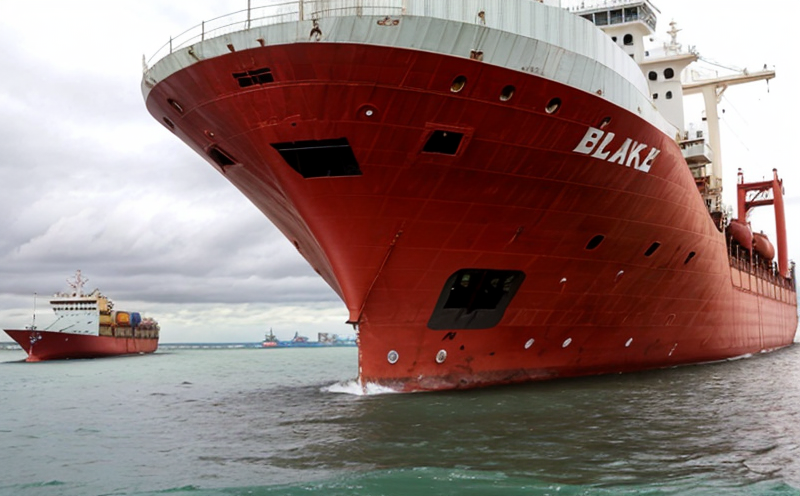Bulk carrier ship inspection
The bulk carrier ship inspection is a critical process ensuring that ships transporting loose cargoes such as grains, ores, and coal meet stringent safety standards. This inspection not only verifies compliance with international maritime regulations but also ensures the structural integrity of the vessel to prevent accidents at sea. The inspection covers various aspects including hull examination, cargo handling systems checks, machinery inspections, and more.
One of the key components of this inspection is the hull assessment. This involves a thorough visual inspection of the ship's exterior, followed by an ultrasonic thickness measurement for detecting any thinning or damage due to corrosion. The International Maritime Organization (IMO) guidelines specifically outline that these measurements should be taken at strategic points along the hull.
The machinery and cargo handling systems are equally important in bulk carrier inspections. The machinery inspection includes checking the propulsion system, auxiliary engines, boilers, and other critical components for wear and tear. For the cargo handling systems, the focus is on conveyor belts, loading arms, and hatches to ensure they function efficiently without any defects.
Another crucial aspect of this inspection involves assessing the ship's structural integrity. This includes checking for cracks or deformations that could compromise the vessel’s ability to withstand harsh weather conditions. Non-destructive testing (NDT) techniques such as radiography, magnetic particle inspection, and eddy current testing are often used during these inspections.
The IMO standards also emphasize the importance of verifying the ship's stability through a series of calculations and assessments. This ensures that the vessel can safely carry its designated cargo load without risking capsizing or other stability issues. Additionally, the International Code for Ships Operating in Polar Waters (Polar Code) provides specific guidance on how to conduct these inspections in cold regions.
For quality assurance purposes, bulk carrier ship inspections are conducted by accredited laboratories that follow stringent protocols and use advanced equipment. These labs ensure that all tests meet international standards such as ISO 9001 for quality management systems. The inspection process typically includes detailed documentation of findings along with recommendations for necessary repairs or modifications.
The importance of these inspections cannot be overstated, especially given the significant role bulk carriers play in global trade. By adhering to strict safety and regulatory requirements, ships can operate more efficiently while reducing the risk of accidents at sea.
Benefits
Safety: Ensures that ships meet all safety requirements to prevent accidents at sea.
Regulatory Compliance: Helps ship operators comply with international maritime regulations and avoid penalties or suspensions.
Efficiency: Identifies potential issues early, allowing for timely repairs which can enhance the vessel’s operational efficiency.
Sustainability: By ensuring that ships are in optimal condition, inspections contribute to reduced fuel consumption and lower emissions.
Extended Lifespan: Regular inspections help maintain the structural integrity of the ship, thereby extending its useful lifespan.
Why Choose This Test
Selecting a reputable laboratory for bulk carrier ship inspections is essential to ensure that your vessel meets all necessary standards. Our accredited laboratories employ highly skilled experts who use state-of-the-art equipment and adhere strictly to international guidelines. We offer comprehensive inspection services covering every aspect of the vessel, from hull assessments to machinery checks.
Our commitment to quality and reliability ensures that you receive accurate and detailed reports on your ship’s condition. This information is invaluable for making informed decisions regarding maintenance schedules and potential upgrades. By choosing us, you not only comply with regulatory requirements but also enhance the safety and efficiency of your operations.
We understand that every client has unique needs, which is why we tailor our inspection services to meet those specific requirements. Whether you need a one-time inspection or regular scheduled checks, we provide flexible solutions designed to suit your business needs.
Quality and Reliability Assurance
At our accredited laboratories, quality and reliability are paramount. We maintain strict adherence to international standards such as ISO 9001 for quality management systems, ensuring that every inspection is conducted professionally and accurately. Our team of experts uses the latest technology and follows rigorous protocols to provide reliable results.
The consistency and accuracy of our inspections are further enhanced by regular training and certification programs for our staff. This ensures that all personnel involved in these processes remain up-to-date with the latest techniques and methodologies. Additionally, we invest heavily in maintaining and upgrading our equipment to ensure it remains at the forefront of technology.
Client satisfaction is a key indicator of our success. We strive to provide services that exceed expectations by offering clear communication throughout the inspection process. Our reports are detailed and easy to understand, providing actionable insights for decision-making purposes. With us, you can trust that your vessel’s inspections will be conducted with the highest degree of professionalism and integrity.





